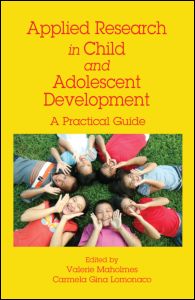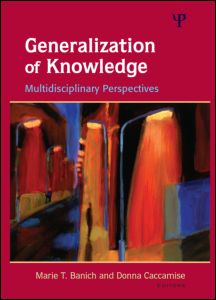New psychology books come in every week at the Central Library. Subscribe to the Psychology Department blog to be kept informed of new arrivals!
If these books are out on loan, do place a hold on them by clicking on the orange “Request” button at the top of the page- that way, you can be the next one to read them!
To see more new Psychology books, click here.
(1) Applied research in child and adolescent development : a practical guide
(edited by Valerie Maholmes, Carmela Gina Lomonaco)
Central Library (Level 3); BF721 App 2010
About the book:
Developed for an NIH training institute, this volume is organized around the most frequently asked questions by researchers starting their careers in applied research in child and adolescent development. With contributions from the leading scholars in the field, actual research experiences highlight the challenges one faces in conducting such research. The techniques and theoretical frameworks most suitable for guiding the applied research process are reviewed along with related ethical and cultural considerations. Each chapter features the authors’ introduction to their own careers in applied research. Also included are practical tips, case studies, and sidebars featuring frequently asked questions.
This practical resource provides tips on how to:
• Modify the most frequently used methodological techniques while maintaining the integrity of the data
• Manage the unpredictable nature of real world research
• Frame community relevant research questions in an academically acceptable way
• Secure funding to conduct applied research
• Disseminate the research results so as to have the greatest impact on policy and practice
The book opens with the most frequently asked questions, tips on getting started in an applied research career, and an overview of and theoretical framework for generating applied developmental research ideas. Section 2 focuses on research designs including the most frequently used methodological and measurement techniques and tips on how to modify them to applied settings. Ethical challenges and cultural issues in working with special populations are also addressed. Section 3 focuses on conducting applied research in school, community, and clinical settings with an emphasis on the challenges encountered when conducting actual research as opposed to the more controlled settings taught in a classroom. Guidelines for protecting the populations involved in the study and strategies for recruiting and retaining participants are also addressed. The book concludes with strategies for disseminating research findings so as to have the greatest impact on policy and practice, for publishing research, and for securing funding. (Routledge)
(2) Insidious workplace behavior
(edited by Jerald Greenberg)
Central Library (Level 3); HF5549.5 Emp.In 2010
About the book:
Insidious Workplace Behavior (IWB) refers to low-level, pervasive acts of deviance directed at individual or organizational targets. Because of its inherently stealthy nature, scientists have paid little attention to IWB, allowing us to know very little about it. With this book, that now is changing. The present volume – the first to showcase this topic – presents original essays by top organizational scientists who share the most current thinking about IWB. Contributors examine, for example, the many forms that IWB takes, focusing on its antecedents, consequences, and moderators. They also highlight ways that organizational leaders can manage and constrain IWB so as to attenuate its adverse effects. And to promote both theory and practice in IWB, contributors also discuss the special problems associated with researching IWB and strategies for overcoming them.
Aimed at students, scholars, and practitioners in the organizational sciences – especially industrial-organizational psychology, organizational behavior, and human resource management – this seminal volume promises to inspire research and practice for years to come. (Routledge)
(3) Domestic violence and psychology : a critical perspective
(By Paula Nicolson)
Central Library (Level 3); HF5549.5 Emp.In 2010
About the book:
This book rethinks the way psychological knowledge of domestic violence has typically been constructed. It puts forward a psychological perspective which is both critical of the traditional ‘woman blaming’ stance, as well as being at odds with the feminist position that men are wholly to blame for domestic abuse and that violence in intimate relationships is caused by gender-power relations. It is rather argued that to neglect the emotions, experiences and psychological explanations for domestic violence is to fail those who suffer and thwart attempts to prevent future abuse.
Paula Nicolson suggests that domestic violence needs to be discussed and understood on several levels: material contexts, including resources such as support networks as well as the physical impact of violence, the discursive, as a social problem or gendered analysis, and the emotional level which can be both conscious and unconscious.
Drawing on the work of scholars including Giddens, Foucault, Klein and Winnicott, and using interview and survey data to illustrate its arguments, Domestic Violence and Psychology develops a theoretical framework for examining the context, intentions and experiences in the lives of women in abusive relationships, the men who abuse and the children who suffer in the abusive family. As such this book will be of great interest to those studying social and clinical psychology, social work, cultural studies, sociology and women’s studies. (Routledge)
(4) Generalization of knowledge : multidisciplinary perspectives
(Edited by Marie T. Banich and Donna Caccamise)
Central Library (Level 3); LB1590.3 Gen 2010
About the book:
While the notion of generalization fits prominently into cognitive theories of learning, there is surprisingly little research literature that takes an overview of the issue from a broad multifaceted perspective. This volume remedies this by taking a multidisciplinary perspective on generalization of knowledge from several fields associated with Cognitive Science, including Cognitive Neuroscience, Computer Science, Education, Linguistics, Developmental Science, and Speech, Language and Hearing Sciences.
Researchers from each perspective explain how their field defines generalization – and what practices, representations, processes, and systems in their field support generalization. They also examine when generalization is detrimental or not needed. A principal aim is the identification of general principles about generalization that can be derived from triangulation across different disciplines and approaches.
Collectively, the contributors’ multidisciplinary approaches to generalization provide new insights into this concept that will, in turn, inform future research into theory and application, including tutoring, assistive technology, and endeavors involving collaboration and distributed cognition.(Taylor & Francis)
(5) Oxford handbook of personality assessment
(edited by James N. Butcher)
Central Library (Level 3); BF698.4 Oxf 2009
About the book:
As one of psychology’s oldest fields, personality assessment is one of the most extensively studied subsets of contemporary psychology. The Oxford Handbook of Personality Assessment synthesizes new and existing literature with clinical practice to provide a comprehensive volume on contemporary personality assessment, including its historical developments, underlying methods, applications, contemporary issues, and assessment techniques.
This handbook, part of the Oxford Library of Psychology, addresses both the historical roots of personality assessment and the evolution of its contemporary methodological tenets, thus providing a foundation for the handbook’s other innovative focus: the application of personality assessment in clinical, personnel, and forensic assessments. With a wealth of respected international contributors and unequalled breadth of content, the Oxford Handbook of Personality Assessment offers an authoritative and field-encompassing resource for researchers and clinicians from across the medical health and psychology disciplines (i.e., clinical psychology, psychiatry, and social work) and would be an ideal text for any graduate course on the topic of personality assessment (Oxford University Press)
Gerrie Kow, Psychology Resource Librarian






